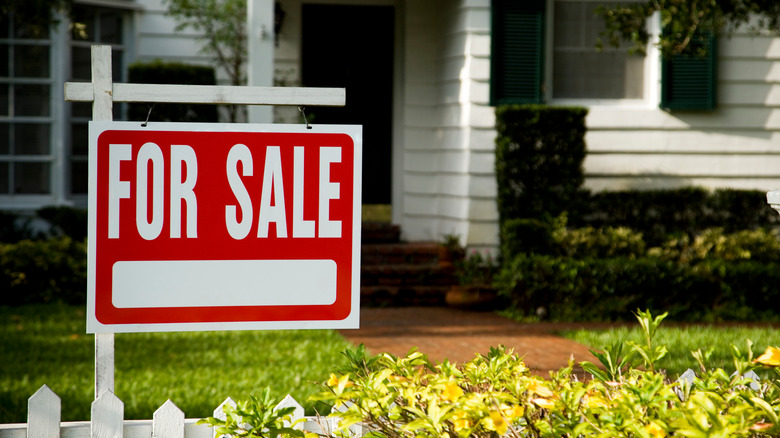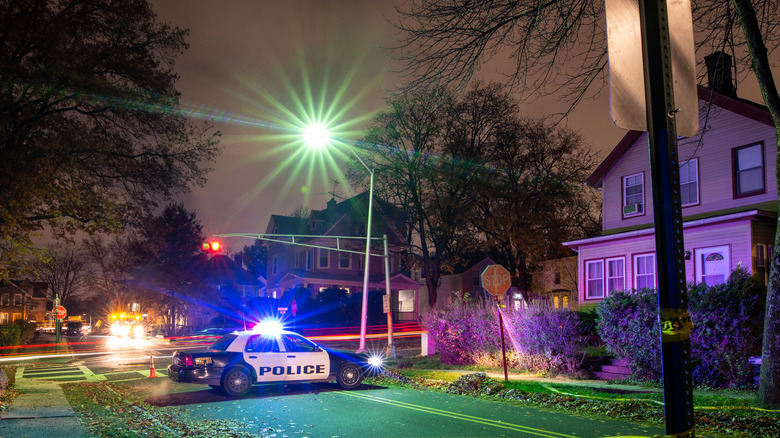Does A Buyer Have The Right To Know If Someone Died In A House?
Home buyers often wonder about what's occurred in the house they purchased, but do they have the right to know those details? Sometimes, the question of whether a home seller has to reveal a death in the home comes up. Interestingly enough, according to Stanford School of Medicine, about 20% of Americans die at home. That's certainly not the majority, but for those buying a home, it may be comforting to know that no death occurred in the house.
If you plan to sell your home, you may know the importance of disclosing property defects you know about, such as the presence of mold or a leak in the roof. These things could impact the value of the home, as well as if it's a safe place for people to live. But, a death in the home doesn't pose any specific hazards to the home buyer, though (not usually, anyway). Does that mean sellers don't have to disclose this information?
Has psychological damage occurred?
There are certain situations when it's necessary to report a death in the home to a prospective buyer. One reason for this is when psychological damage has occurred to the property. It may sound strange, but this can occur, and when it does, it may impact the value of the home, says Nolo. Psychological damage can be significant. If, for example, a murder occurred in the house, and it was publicized, that has a psychological impact on the property. In addition, a person may have committed suicide in the home during a police standoff. These types of events are often well known throughout the community when they occur.
As a direct result of these violent events, the house could be stigmatized. That could mean that the home is now worth less because most people wouldn't want to buy a home with this type of past, and locals tell stories about the deaths or possible hauntings of the home. In this situation, many states require the property owner to inform buyers of the death, specifically when a violent crime occurs.
If you or anyone you know is having suicidal thoughts, please call the National Suicide Prevention Lifeline by dialing 988 or by calling 1-800-273-TALK (8255).
State laws can differ
What about a typical older person passing away in their sleep or a person suffering a heart attack mowing the lawn? In these situations, state laws determine if a seller must disclose the death. Investopedia states that no state has a law in which there is a requirement for the seller to inform the buyers of a death brought on by natural causes. Other types of deaths may require reporting in various ways. For example, in Georgia, if the seller asks if a death has occurred, then the seller must disclose this. In Texas, a death by suicide does not have to be disclosed.
If you plan to buy a home and it bothers you that someone could have died there, ask your real estate agent for insight into your state's laws regarding reporting requirements. They can provide guidance to you before you buy (or even see) a home if these concerns exist. That includes those who are worried about haunted houses.


